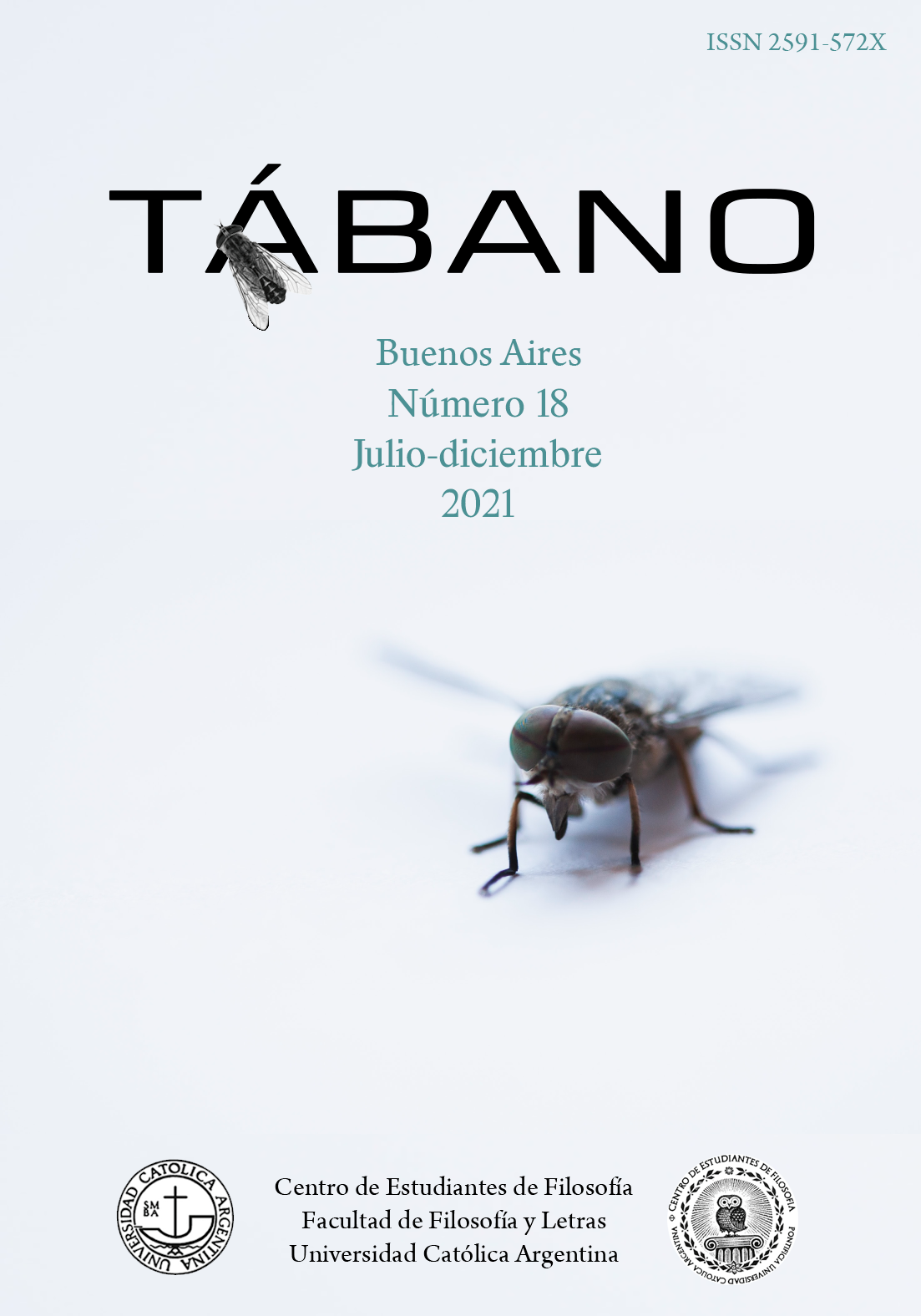How Many Steps Haven’t We Walked in Barefoot? Notes Towards a Theopoetics of Hospitality
DOI:
https://doi.org/10.46553/tab.18.2021.p144-157Keywords:
Hospitality, poetry, theology, liminality, migrationAbstract
The history of humankind is often told from an evolutionary perspective, in which sedentary life is valued as qualitatively more developed than that lived nomadically. Nonetheless, the same history also offers a testimony of the status viatoris of human condition, of which the migratory movements are merely an expression of it. The perpetual motion of human communities often raises ambivalent, as well as paradoxical, of belonging and marginality. In many places of our contemporary society, feelings of hostility towards the marginality tend to grow in traditional Christian communities, which from our point of view is to be considered as a deviation of Christianity from its matrix foundations. Therefore, from a theopoetic approach – to which we shall invoke contemporary Portuguese poets, such as Sophia de Mello Breyner, Ruy and Daniel Faria – we aim to carry out an articulation of a theological discourse to return the Gospel to Christianity, that place of theological accomplishment of liminality.
Downloads
References
Amaral, F. (2013). Para lá do tempo e do espaço. O Problema da Habitação. Alguns aspectos. Lisboa: Assírio & Alvim.
Andresen, S. (2003). O Cristo Cigano. Lisboa: Editorial Caminho.
Andresen, S. (2015). Obra Poética. Lisboa: Assírio & Alvim.
Avenatti de Palumbo, C. (2017). La hospitalidad como poética de la esperanza. Franciscanum, n. 168, pp. 175-196.
Bargár, P. (2016). Narrative, Myth, Transformation. Reflecting Theologically on Contemporary Culture. Jihlava: Jan Kerkovsky – Mlyn.
Belo, R. (2013). O Problema da Habitação. Alguns aspectos. Lisboa: Assírio & Alvim.
Buber, M. (1963). Les Récits Hassidiques. Paris : Éditions du Rocher.
Campese, G. (2018). Why Are You Afraid? Have You Still No Faith? (Mk 4: 40). Becoming a Pilgrim People of God. Challenged by Ecumenism. Documentation of the Global Ecumenical Theological Institute – Berlin. Hamburg: Missionshilfe Verlag, pp. 39-48.
Corzo Toral, J. L. (2006). Dar la palabra a los inmigrantes. Inmigración y estructuras sociales. Salamanca: Servicio de Publicaciones de la Universidad Pontificia, pp. 243-255.
Faria, D. (2014). Explicación de los árboles y de otros animales. Salamanca: Ediciones Sígueme.
Faria, D. (2015). Hombres que son como lugares mal situados. Salamanca: Ediciones Sígueme.
Faria, D. (2016). De los líquidos. Salamanca: Ediciones Sígueme.
González Martín, M. (2015). De la hostilidad a la hospitalidad. Barcelona: Cristianisme i Justicia.
Hintersteiner, N. (2017). Translating God(s): From World Mission to Interreligious Witness. Reforming Theology, Migrating Church, Transforming Society. A Compendium for Ecumenical Education. Hamburg: Missionshilfe Verlag, pp. 68-87.
Kahl, W. (2017). Migration in the perspective of Early Christianity. Reforming Theology, Migrating Church, Transforming Society. A Compendium for Ecumenical Education. Hamburg: Missionshilfe Verlag, pp. 170-177.
Kärkkäinen, V.-M. (2018). Reforming Theology for the Sake of a Religiously Pluralistic and Secular “Post”-World. An Inclusive, Dialogical and Hospitable Vision. Challenged by Ecumenism. Documentation of the Global Ecumenical Theological Institute – Berlin 2017. Hamburg: Missionshilfe Verlag, pp. 28-38.
Lévinas, E. (1988). Ética e Infinito. Diálogos com Philippe Nemo. Lisboa: Edições 70.
Marcel, G. (1978). Homo Viator. Introduction to a Metaphysic of Hope. Gloucester, MA: Peter Smith.
Maruri Álvarez, A. (2006). También hay otros inmigrantes. Experiencia de casa de acogida para inmigrantes recién llegados y exreclusos. Inmigración y estructuras sociales. Salamanca: Servicio de Publicaciones de la Universidad Pontificia, pp. 225-242.
Mena, J. M. (2008). Tradiciones y leyendas de Sevilla. Barcelona: Plaza & Janes.
Mendes, M. (2014). Estudo Nacional sobre as Comunidades Ciganas. Lisboa: Alto Comissariado para as Migrações.
Mota Rodríguez, A. (2018). Hermenéutica analógica, migración e identidad cultural. Studium, n. 41, pp. 67-92.
Noble, T. (2017). Migration as Hospitality Towards the Other. Reforming Theology, Migrating Church, Transforming Society. A Compendium for Ecumenical Education. Hamburg: Missionshilfe Verlag, pp. 192-197.
Oliveira, C. & N. Gomes (2018). Indicadores de integração de imigrantes: relatório estatístico anual. Imigração em Números – Relatórios Anuais, n. 3, pp. 35-43.
Rivas Nieto, P. (2006). La nueva política y la identidad colectiva en la gestación de los conflictos. Algunas claves para entender el fenómeno migratorio a principios del siglo XXI. Inmigración y estructuras sociales. Salamanca: Servicio de Publicaciones de la Universidad Pontificia, pp. 267-281.
Segovia Bernabé, J. L. (2006). Alianza o choque de civilizaciones. Algunos aspectos olvidados del debate. Inmigración y estructuras sociales. Salamanca: Servicio de Publicaciones de la Universidad Pontificia, pp. 283-302.
Torralba, F. (2004). «No olvidéis la hospitalidad» (Heb 13, 2). Una exploración teológica. Madrid: PPC.
Tulud Cruz, G. (2017). Migration as Locus Theologicus. Reforming Theology, Migrating Church, Transforming Society. A Compendium for Ecumenical Education. Hamburg: Missionshilfe Verlag, pp. 164-169.
Veen, M. (2018). A Pilgrimage of Justice and Peace in Relation to Migrants. Challenged by Ecumenism. Documentation of the Global Ecumenical Theological Institute – Berlin 2017. Hamburg: Missionshilfe Verlag, pp. 166-174.
Wolf, M. (2017). Remembering Well in a Violent World. Reforming Theology, Migrating Church, Transforming Society. A Compendium for Ecumenical Education. Hamburg: Missionshilfe Verlag, pp. 248-253.
Downloads
Published
How to Cite
Issue
Section
License
Copyright (c) 2021 José Pedro Angélico

This work is licensed under a Creative Commons Attribution-NonCommercial-ShareAlike 4.0 International License.


